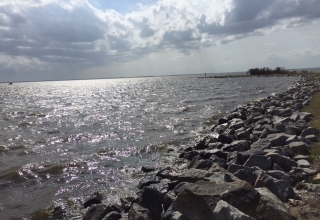
There are other areas where knowledge (and wisdom) with regard to propinquity might be valued. Physical and mental health professionals will certainly be addressing issues of stress and overwhelm associated with this propinquity, as will professionals in the fields of executive coaching, leadership development and advanced human factors analysis. Of greatest importance is a more fundamental observation: we don’t yet know how this knowledge will be of greatest value—the human-embedded technologies are changing too fast to make any kind of confident predictions about the psychological impacts and remedies. What we do know with confidence is that human-embedded technologies are here to stay and are growing in number and variety. Propinquity might be an obscure word, but it represents a fundamental revolution in the intimate relationship between humans and their technologies.
The Onus is on Us!
Education and critical thinking skills are essential to prevent us being duped. In the same way that many companies provide (and require) training on how to prevent cyber-attacks, phishing and insider threats, education on how to identify misinformation and stop the spread is available. Just one example is the work being done by UNESCO by training teachers on how to identify and mitigate the spread of conspiracy theories and misinformation:
The fight against conspiracy theories, and the antisemitic and racist ideologies they often convey, begins at school, yet teachers worldwide lack the adequate training. That is why today, UNESCO is launching a practical guide for educators, so they can better teach students how to identify and debunk conspiracy theories. [Addressing conspiracy theories through education: UNESCO guidance for teachers | UNESCO]
Education – especially from an early age – is critical in protecting against nefarious attempts to manipulate and influence susceptible individuals. We have said much more about the role played by education in a previous essay. Numerous educational specialists have addressed this important remedy to digitally saturated perspectives: “The one thing we know that helps against them (conspiracy theories and misinformation) is education. The propensity to believe in conspiracy theories is highly correlated with the level of education”. [Education can help against conspiracy theories – EuroScientist journal].
Is formal learning passe? Perhaps not. It might still be of some value to read a book, enter a classroom, and debate an issue—all of this in the midst of a digital world that declares we no longer need books, classrooms or multiple perspectives on important issues.
___________________














